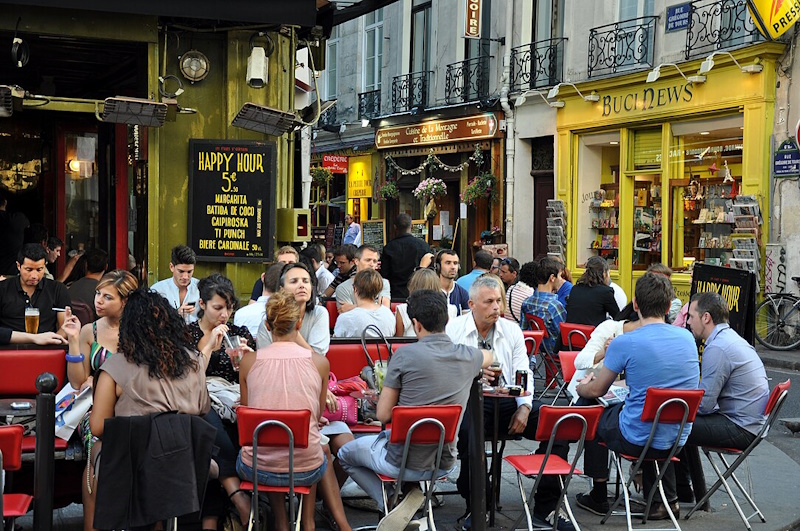7 Ways US/UK Culture Has Changed the French
The French have a reputation for doing things their own way. But over the years, so called anglo-saxon culture – primarily U.S/U.K – has crept in, changing habits, attitudes, and even daily life.
Some changes are obvious. Others, more subtle. France isn’t as immune to outside influence as it once was. Here are a few strong signs.
1. Brunch Is Now a Thing
For years, brunch didn’t exist in France.
Late breakfast? Early lunch? No thanks. It was either croissants at 8 a.m. or steak-frites at noon. Nothing in between.
But that’s changed.
Cafés across Paris and beyond now offer poached eggs, pancakes, bottomless coffee, even mimosa menus.
It started as a trend in expat neighborhoods. Now it’s mainstream. The French might still raise an eyebrow at syrup on bacon—but they’re ordering it.
2. More Openness to Therapy and Self-Help
Talking to a therapist used to be rare in France.
It was private. Even taboo.
But American culture—through books, podcasts, social media—made therapy feel normal, even empowering.
Now, French bookstores have self-help sections. Mental health influencers are on Instagram. And more people, especially younger generations, are open about going to therapy.
The “talking cure” has a French passport now.
TV Dubbing Is Losing Ground
For decades, the French dubbed everything.
Hollywood movies, British TV series, even The Simpsons.
But now? Younger viewers prefer subtitles. They want to hear the real voices.
Streaming platforms helped. So did English classes and pop culture.
You can still find dubbed versions, but the shift toward original audio is real.
Fitness Culture Is Catching On
The old cliché: French people don’t go to the gym, they just walk everywhere and smoke.
Not anymore.
Boutique fitness studios are popping up. CrossFit boxes. Spin classes. Even yoga with English-speaking instructors.
The influence came mostly from the US, with some UK trends mixed in.
Working out is no longer weird. It’s just part of life.
1. Fast Food Is No Longer Taboo
Once upon a time, fast food was a guilty pleasure.
McDonald’s existed, but it wasn’t something people openly loved.
That’s changed. Now, American-style fast-casual chains are everywhere. Burger places have exploded. Even boulangeries sell them.
Food delivery apps like Uber Eats and Deliveroo have made quick, casual food an everyday thing.
The old idea of a long, sit-down meal is fading in favor of convenience.
4. More French People Speak English Now
The stereotype of French people refusing to speak English is fading.
Tourism, business, and pop culture have made English a necessity.
Younger generations are far more fluent than their parents.
In big cities, many businesses expect employees to speak at least some English.
And despite the old reputation, it’s getting easier to get by in France without speaking perfect French.
1. Cocktails Over Wine
Wine has long been the default in France. A glass with lunch, a bottle at dinner – it was part of the culture.
But in cities like Paris, cocktails are everywhere now. Speakeasies, rooftop bars, gin tastings. The French didn’t invent the cocktail scene, but they’ve embraced it.
American-style bars have made drinking spirits feel more sophisticated, more normal. Now, ordering an Old Fashioned isn’t seen as trying to be fancy – it’s just another option.
7. Customer Service Is Improving
Traditionally, French service wasn’t about pleasing the customer.
The idea that “the customer is king” was an American thing.
But now, in big cities and tourist-heavy areas, you’ll notice a shift.
Waiters are friendlier. Shop assistants are more helpful.
It’s not universal, and it’s still nothing like the US, but businesses are realizing that a little extra warmth goes a long way for business.
Business Pitches Sound More American
French meetings used to be formal. Structured. Long.
But watch a young French entrepreneur pitch a startup today – it sounds straight out of Silicon Valley.
English buzzwords. Big energy. Storytelling.
The startup world in France has adopted a more American tone. Less theory, more speed. Less hedging, more boldness.
Even French investors expect it now.

